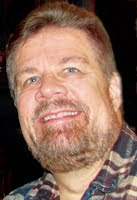“Bah!” said Scrooge. “Humbug!” he added.
And our English-speaking world was never again the same.
Now, the word “humbug,” in and of itself, predates the Dickens Christmas Carol by nearly a century – an archaic exclamation even then ... the callous utterance of a wrinkled curmudgeon graying of hair and spirit alike.
“Humbug” is variously defined as “Rubbish, pretense, deception, or a sham.” Its documented origin dates to 1751 as student slang for a “trick, jest, hoax, deception ... of unknown origin” ... even referring to a type of British hard candy (though that repugnant name surely negates whatever dulcitude it might possess).
Skulduggery. Buggered. Don’t bug me. Repugnant. Ugly. Somehow the “u-g” (or “ugh”) construction proves onomatopoetical in most of its varied incarnations. But that may just be me, bludgeoning you, tough guy, with curmudgeonly sludge.
The sound of a word often enhances its inherent meaning. Consider how simple rhymes of “power” can mirror the emotion when we speak of “a towering triumph,” for example, a “shower” of gifts, or a “glowering” gaze ... and even “cowering” in a corner seems to carry timidness to a powerful extreme.
You can “plunk” cash on a counter, or plunk away at the keys of a piano – implying a carelessness in dealing with “junk.” The word “fiery” carries so much more impact that “hot.” Words like “aloof” and “benign” look and sound like we shouldn’t pay attention.
And I never cared a lick for hicks like “Tricky Dick” and “Slick Willy” – and I could tick off a hundred reasons they made me sick in their day (yet “Nick” is the devil, and “Old St. Nick” the jolliest of elves ... go figure).
Still, I always find it ironic that “onomatopoeia” doesn’t sound like what it means (else rather than describing a word that sounds like its meaning, it would describe a word that not pronounced the way it’s spelled).
Bottom line: Powerful words can add “pop” to a passage of text – a little “zing” to linger on the lips.
Next: God Bless Us, Every One!
And our English-speaking world was never again the same.
Now, the word “humbug,” in and of itself, predates the Dickens Christmas Carol by nearly a century – an archaic exclamation even then ... the callous utterance of a wrinkled curmudgeon graying of hair and spirit alike.
“Humbug” is variously defined as “Rubbish, pretense, deception, or a sham.” Its documented origin dates to 1751 as student slang for a “trick, jest, hoax, deception ... of unknown origin” ... even referring to a type of British hard candy (though that repugnant name surely negates whatever dulcitude it might possess).
Skulduggery. Buggered. Don’t bug me. Repugnant. Ugly. Somehow the “u-g” (or “ugh”) construction proves onomatopoetical in most of its varied incarnations. But that may just be me, bludgeoning you, tough guy, with curmudgeonly sludge.
The sound of a word often enhances its inherent meaning. Consider how simple rhymes of “power” can mirror the emotion when we speak of “a towering triumph,” for example, a “shower” of gifts, or a “glowering” gaze ... and even “cowering” in a corner seems to carry timidness to a powerful extreme.
You can “plunk” cash on a counter, or plunk away at the keys of a piano – implying a carelessness in dealing with “junk.” The word “fiery” carries so much more impact that “hot.” Words like “aloof” and “benign” look and sound like we shouldn’t pay attention.
And I never cared a lick for hicks like “Tricky Dick” and “Slick Willy” – and I could tick off a hundred reasons they made me sick in their day (yet “Nick” is the devil, and “Old St. Nick” the jolliest of elves ... go figure).
Still, I always find it ironic that “onomatopoeia” doesn’t sound like what it means (else rather than describing a word that sounds like its meaning, it would describe a word that not pronounced the way it’s spelled).
Bottom line: Powerful words can add “pop” to a passage of text – a little “zing” to linger on the lips.
Next: God Bless Us, Every One!
[For personal writing assistance, go to www.fixadocument.com]

No comments:
Post a Comment